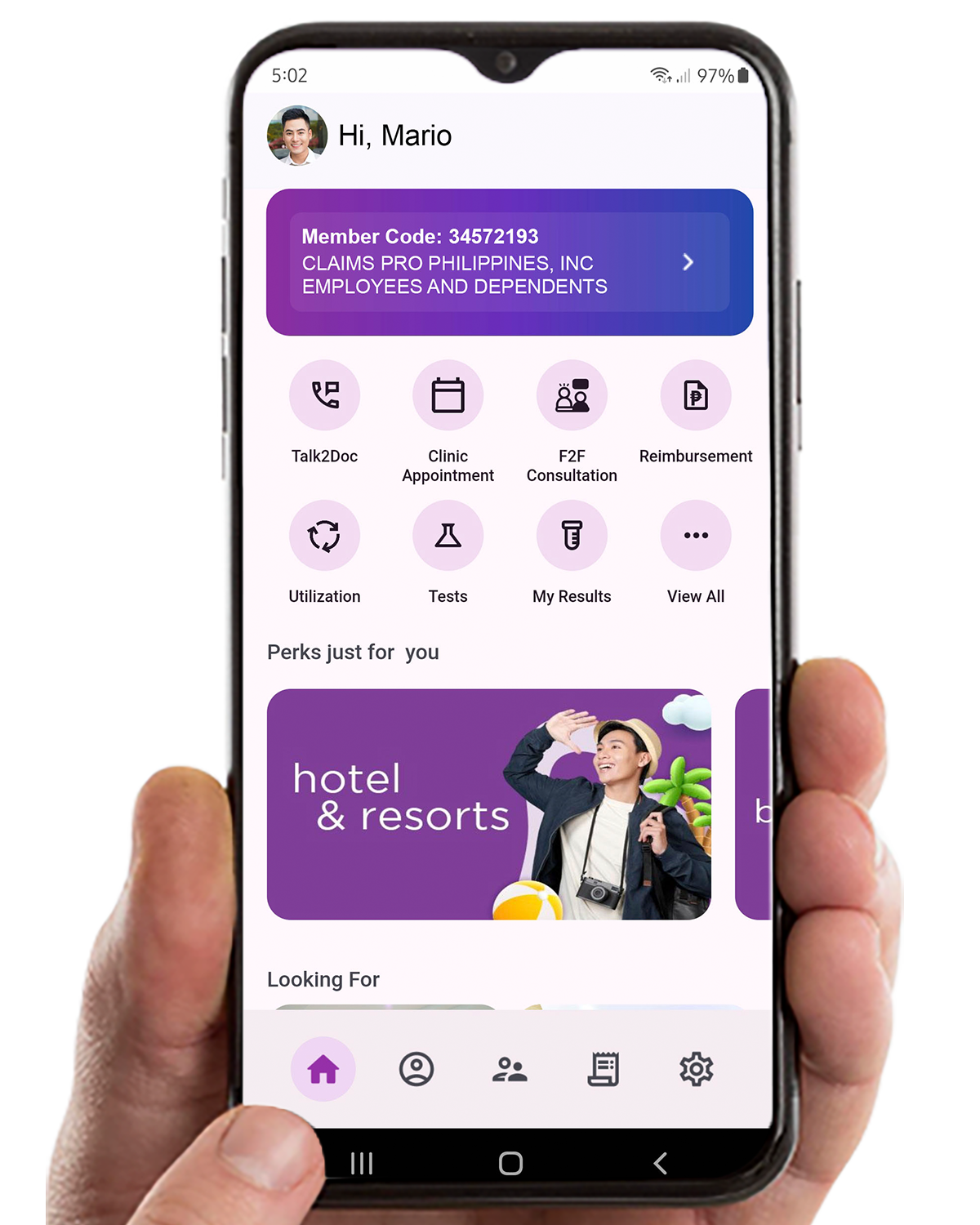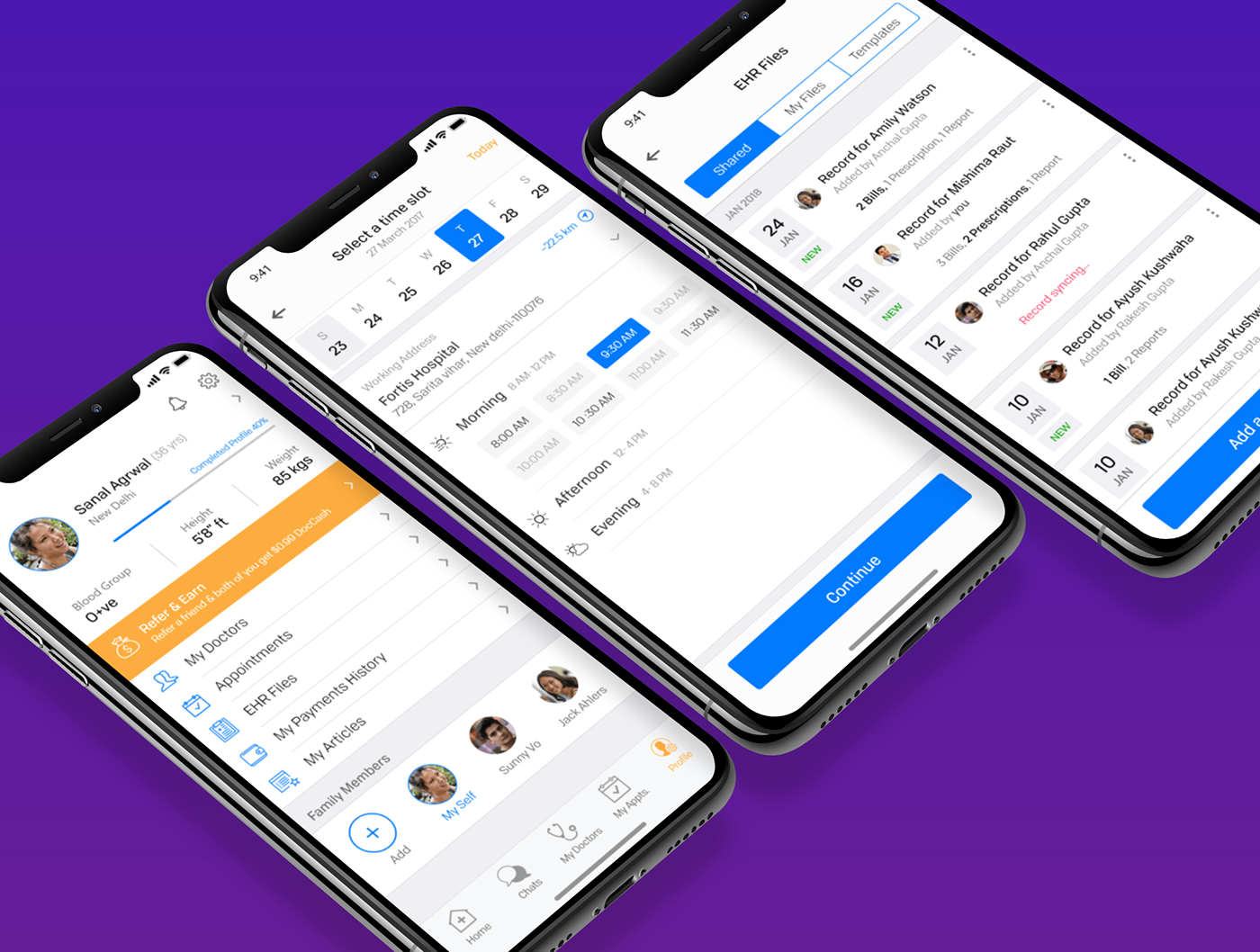How a Mobile App for Clinics Boosts Communication Between Doctors and Patients
How a Mobile App for Clinics Boosts Communication Between Doctors and Patients
Blog Article
The Future of Medical Care: Why Clinics Required a Mobile App Today
As the healthcare landscape continues to progress, centers encounter placing pressure to adjust to patient expectations for better comfort and availability. The assimilation of mobile applications can serve as an important technique for improving patient involvement and enhancing procedures.
Transforming Individual Expectations
As the landscape of health care evolves, person assumptions are undergoing a substantial change. Today's people are progressively looking for benefit, access, and customized treatment.
Additionally, people are becoming much more educated and encouraged, frequently investigating problems and treatments on the internet before appointments. This heightened awareness is combined with a need for openness in healthcare processes, including expense quotes and therapy alternatives. Because of this, service providers are forced to adjust by taking on electronic devices that enhance the patient experience.
The expectation for efficient and prompt interaction has actually never ever been greater, with several people considering responsiveness a vital element of high quality care. mobile app for clinics. In this developing landscape, healthcare companies must recognize these changing assumptions and utilize mobile applications to cultivate an extra patient-centric technique, making sure that they not just satisfy however surpass the requirements set by today's informed customers
Enhancing Individual Engagement

Mobile applications promote interaction in between clients and health care carriers, allowing real-time consultation organizing, suggestions for medicine adherence, and direct messaging attributes. These performances not just enhance comfort however likewise construct a feeling of responsibility amongst people. Mobile applications can supply instructional web content customized to specific requirements, helping clients better understand their conditions and treatment options.
The assimilation of gamification components within health care apps can likewise motivate patients to participate in healthy and balanced behaviors, reinforcing positive lifestyle adjustments. By tracking progression and satisfying accomplishments, clients are much more most likely to stay dedicated to their health and wellness goals. Ultimately, enhancing person interaction via mobile applications brings about enhanced health outcomes, higher client complete satisfaction, and a more joint health care experience. Clinics that prioritize this facet will likely see a substantial effect on the quality of treatment provided.
Improving Facility Operations
Enhancing clinic operations is essential for improving workflow effectiveness and maximizing patient treatment. The execution of mobile applications can substantially reduce administrative worries, allowing doctor to concentrate extra on client communications. By automating consultation organizing, client check-ins, and invoicing procedures, facilities can minimize wait times and enhance general functional performance.
Mobile apps also assist in real-time accessibility to person records, enabling health care experts to make enlightened choices quickly. This immediacy not only enhances the quality of care however likewise minimizes the chance of mistakes connected with lost or obsoleted information. Leveraging mobile technology supports a more organized strategy to managing person follow-ups and therapy strategies, making sure that no essential actions are overlooked.
This enables for prompt replenishment and assists stay clear of disruptions in patient care due to equip lacks. By integrating these capabilities into their day-to-day operations, facilities can create an extra reliable and cohesive setting, ultimately leading to enhanced patient results and contentment.
Improving Communication Networks
Effective communication is regularly cited as a foundation of top quality healthcare shipment. In today's busy mobile app for clinics clinical environment, mobile applications can dramatically enhance communication networks in between facilities, clients, and health care service providers. By incorporating mobile applications right into their operations, clinics can assist in real-time communications, ensuring that clients get prompt details concerning their consultations, test results, and treatment plans.
Mobile apps likewise equip individuals to connect straight with their medical care groups through secure messaging features. This direct line of communication fosters a sense of interaction and enables instant information of worries, which can bring about far better adherence to therapy methods. In addition, press alerts can remind clients of upcoming consultations or medicine timetables, decreasing no-show prices and enhancing general health and wellness results.

Staying Affordable in Healthcare
In a quickly evolving health care landscape, companies must prioritize development and adaptability to preserve an one-upmanship. The assimilation of mobile applications into healthcare services is no much longer optional; it is vital for clinics intending to enhance person interaction, simplify procedures, and improve overall solution delivery.
As individuals progressively depend on electronic systems for health and wellness monitoring, clinics that stop working to embrace mobile technology danger falling back. A well-designed mobile app can use features such as consultation organizing, telemedicine assessments, and accessibility to clinical records, supplying individuals with ease and cultivating commitment.

Rivals are likewise purchasing mobile services, so staying in advance requires continual enhancement and remaining notified concerning technological advancements. Facilities should not just execute mobile applications yet likewise take part in routine updates and improvements. Ultimately, the effective integration of mobile modern technology will differentiate forward-thinking healthcare organizations and established the benchmark for patient-centric treatment in an electronic world.
Final Thought
In conclusion, the combination of mobile applications in facilities is critical to deal with the advancing landscape of patient expectations. By boosting patient interaction, enhancing procedures, and improving interaction networks, facilities can considerably improve wellness outcomes. Furthermore, the fostering of mobile modern technology positions clinics to stay competitive in a significantly electronic medical care environment. Eventually, the calculated execution of mobile applications stands for an essential step toward supplying available and individualized medical care, therefore fulfilling the needs of today's equipped clients.
Ultimately, boosting individual interaction through mobile applications leads to improved wellness results, greater person satisfaction, and an extra collective healthcare experience.Mobile applications additionally help with real-time access to person records, making it possible for medical link care professionals to make enlightened decisions quickly. In today's busy medical setting, mobile applications can substantially enhance interaction channels in between clinics, individuals, and healthcare carriers.Mobile apps additionally empower people to interact directly with their health care teams with secure messaging functions. Ultimately, the calculated implementation of mobile apps stands for an important action toward providing accessible and individualized medical care, thus meeting the needs of today's equipped individuals.
Report this page